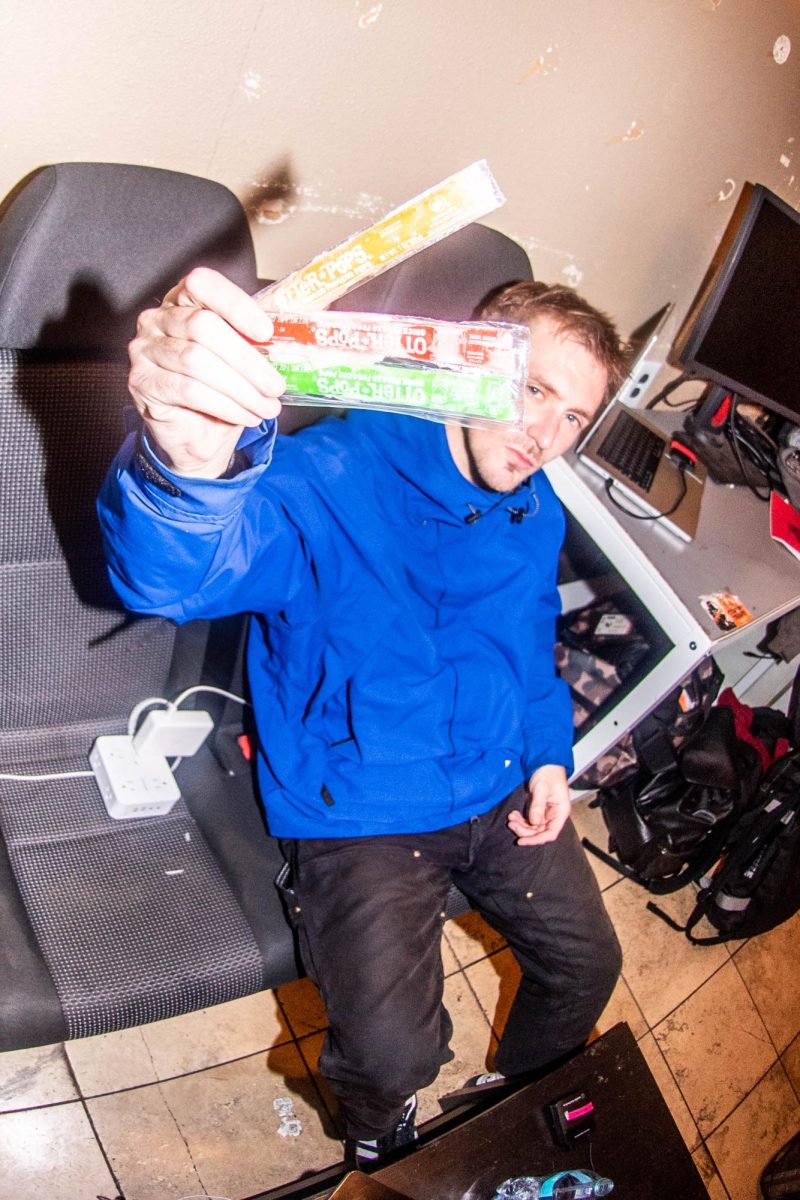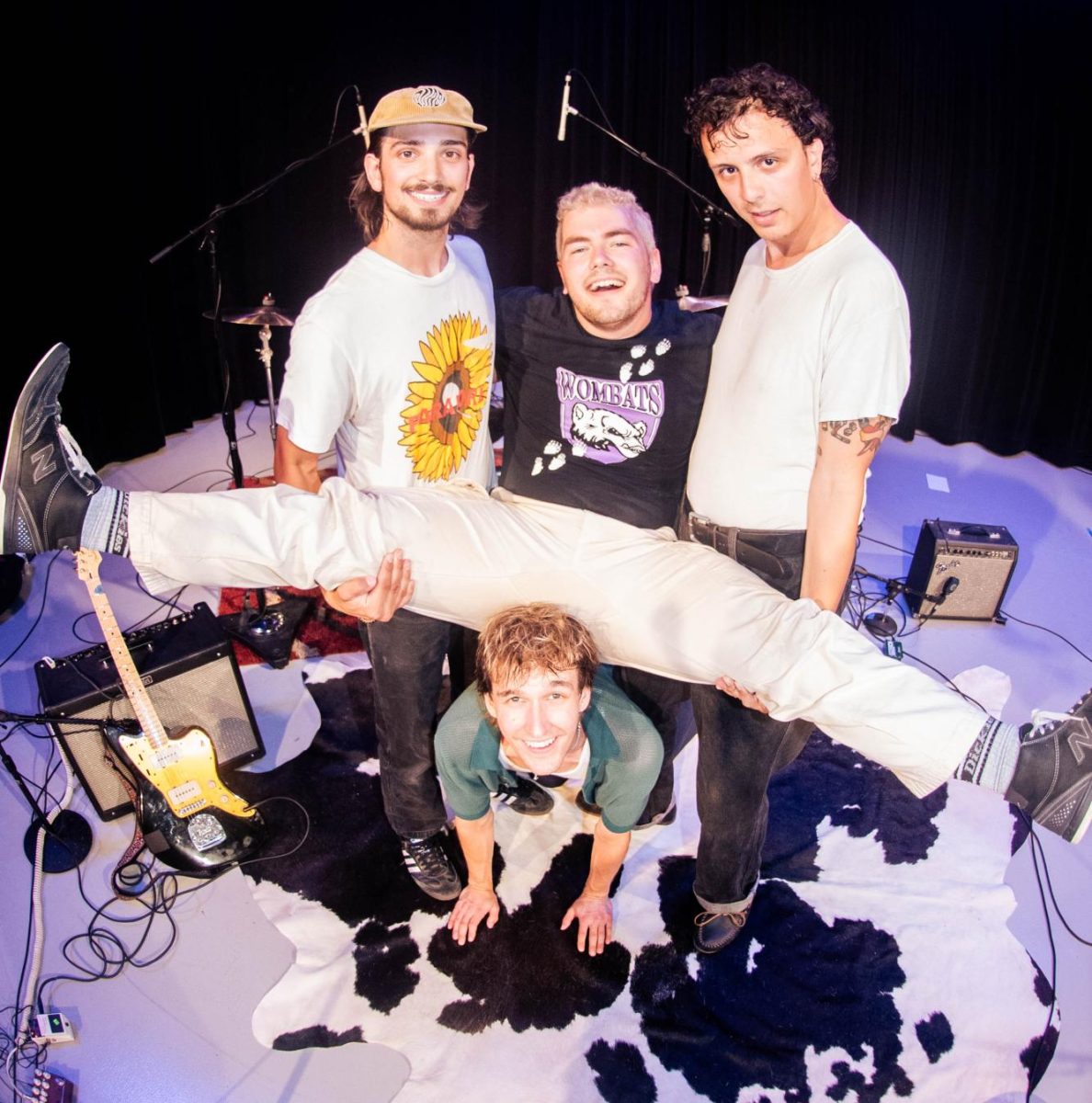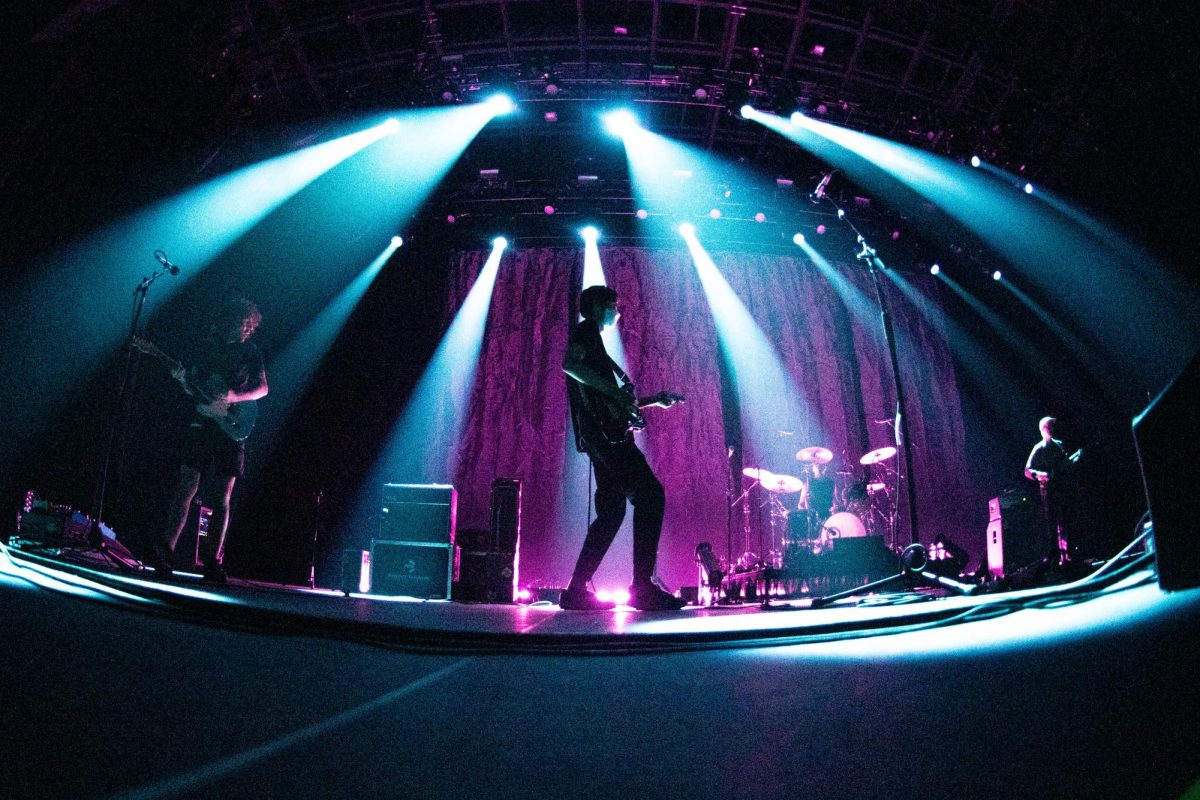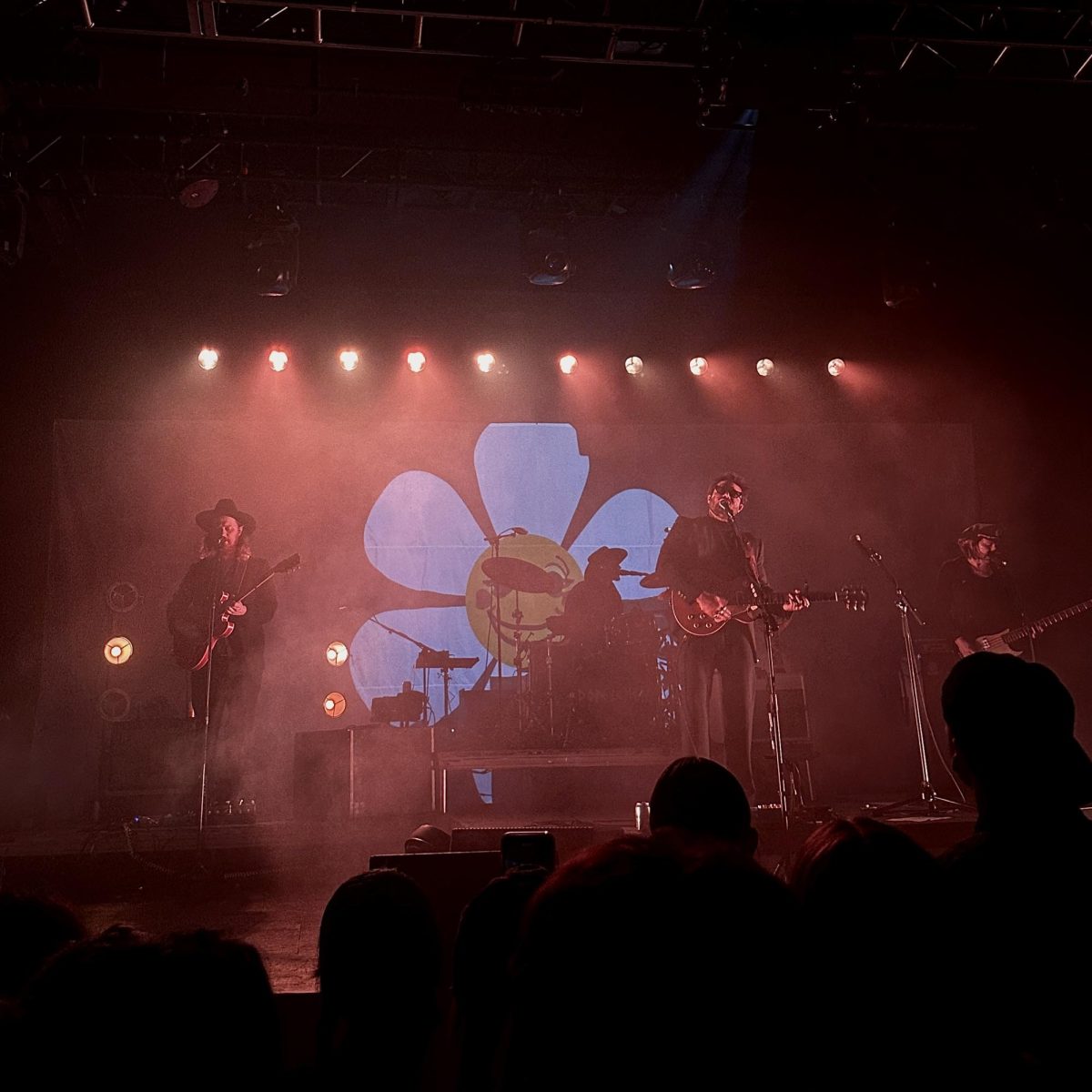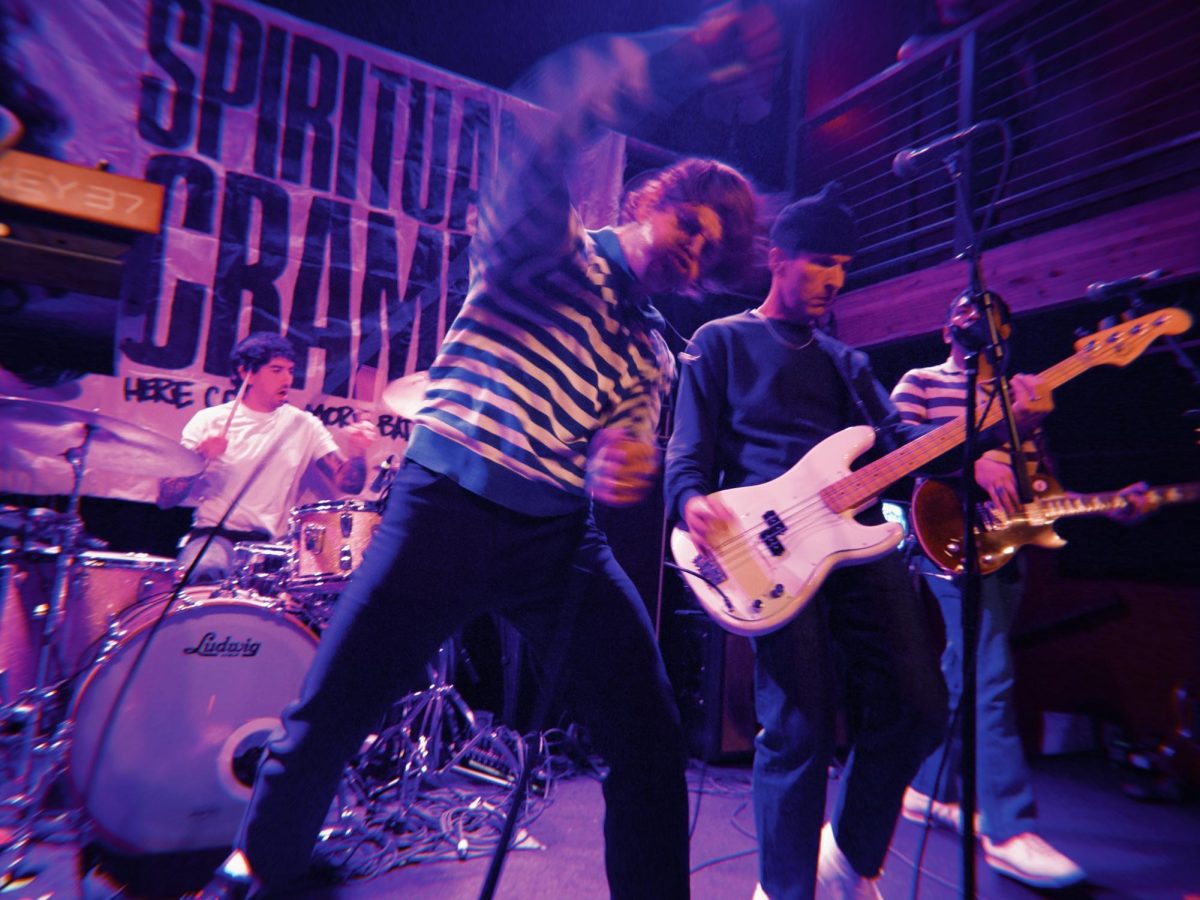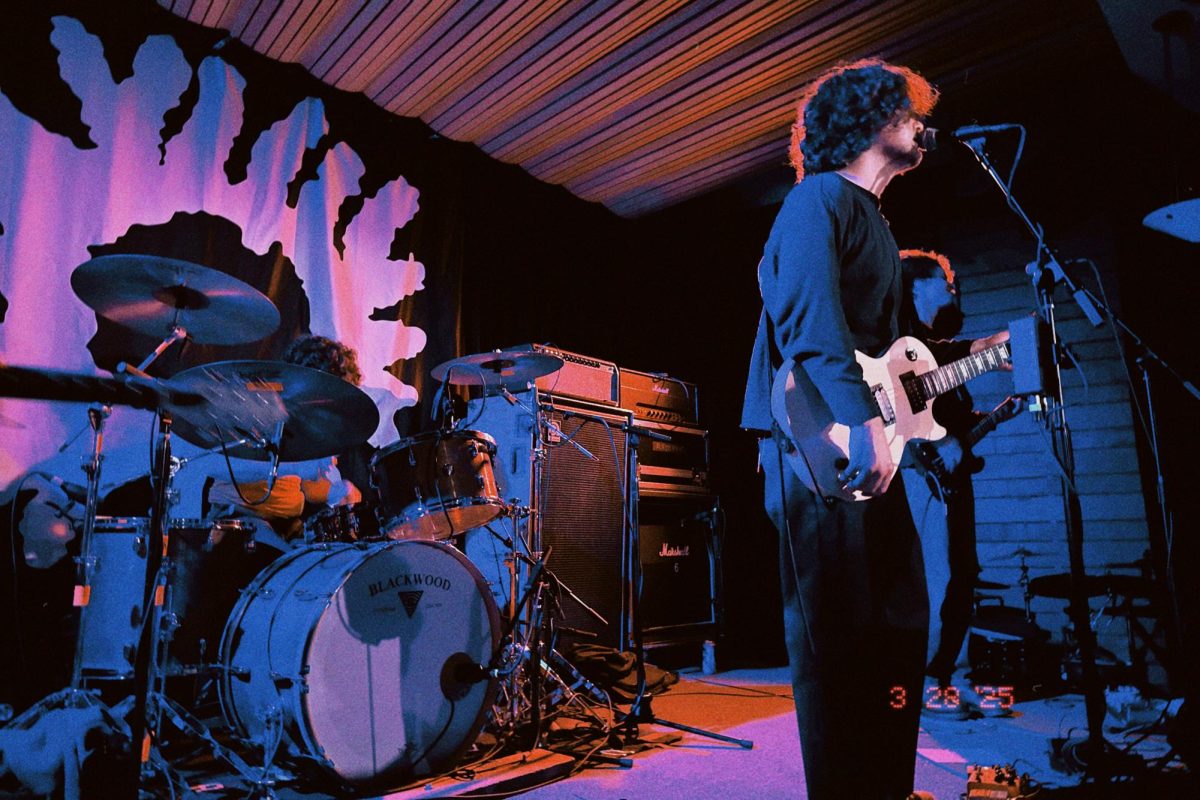By the time I sit down with Ian Patrick Shelton in the green room of Portland’s High Limit Room, the air feels half alive, a mix of sweat, non alcoholic beer, and the inevitable exhaustion that follows a high-energy performance. Ian is perched on the backseat of a car-turned-couch, in his infamous blue windbreaker. The rest of the band has filtered out, leaving a hum of laughter.“Okay, this is gonna be a speed interview,” I tell him. “I’m sure you’re really exhausted right now.”
“Oh, good, dude,” he says, smiling faintly. “Whatever you guys need.”
When I ask what his favorite song to play was that night, he doesn’t hesitate.
He leans forward, eyes still bright despite the fatigue. “Thought You Were Waving. It just landed emotionally. It’s hard having to introduce the songs every night and not say the same thing, but have the same sentiment. There was someone really emotional up front, that always means a lot to me. It felt really gratifying.”
“Thought You Were Waving” was released in July 2024, a little over a year before the band’s full-length album “God Save The Gun” was released on October 17th, 2025. I admit to him that I had to shield my face from the friend I had attended the show with, so they didn’t see the tears rolling down my face. He nods. “People talk about the empathy of Military Gun like it’s something rare. I don’t think other bands aren’t empathetic, maybe it’s just because I’m a broken record, singing about it over and over again.”
Shelton speaks like someone trying to solve a feeling. His words drift between reflection and analysis, but always orbits a raw feeling. “I’m really proud of this lyric,” he says. “‘I saw you through the window of another burning house. I just thought you lived there.’ We’re all living in our own burning house.”
That lyric hangs in the air. I tell him how it hit me, how the crowd seemed to hold its breath during that song. He nods again, quieter. “It’s normalized, right? Everyone’s just kind of dying a little bit. We’re all exhausted. Life’s a grind. So songs like that, they’re a break. A pause.”
When I ask what he’s most excited for on the new album, God Save The Gun, his tone shifts from introspection to pure joy. “For people to hear it in context,” he says. “I hate releasing singles, it pulls the songs out of the world they belong to. The album’s full of these weird, aggressive pop experiments. They only make sense when you hear them all together.”
That phrase “aggressive pop experiments” feels like the truest way to describe Military Gun’s newest shift in sound: melodic but sharp-edged, cathartic without posturing, hardcore woven with delicate melodies. “We’re always on the hunt for the next song to fall in love with,” he explains. “It could be The Beach Boys, The 1975, Modest Mouse, whatever. Like, the song VAD and EA came from The United States of Whatever. It’s random, but it’s all love. We’re fans first.”
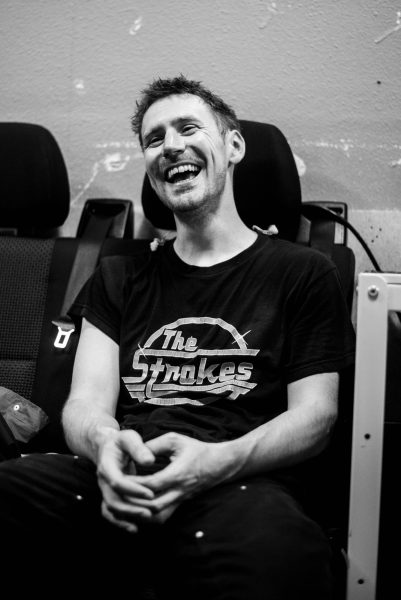
He laughs when I tell him I love that approach, the collage-like chaos of it. “Exactly,” he says. “We want people to nerd out. To go, ‘Oh my god, this sounds like this, but it’s not that.’ That’s the fun.”
The conversation turns to Portland. “For relevant to Portland, we have Isaac Brock from Modest Mouse on our album,” he says casually, but there’s awe in his voice. “It’s a version of Thought You Were Waving, an interlude that leads into it. We met Isaac here, hung out in the studio. It’s surreal. Teenage me wouldn’t believe it.”
Then, his expression hardens slightly — not out of cynicism, but conviction. “The message of the record is that you don’t have to hit rock bottom. You can choose to pull yourself out of a bad place. No one’s coming to save you. It’s heavy, but it’s real.”
The quiet after that sentence feels sacred, like the pause after feedback fades.
When I ask what “Military Gun” means to him now, he exhales slowly. “That’s just me,” he says. “I can’t get past the things I can’t get past. I dwell. I try to find new words that make me feel better about it. We hope that no matter what we write, if I sing on it, it’ll sound like a Military Gun song. There are no rules.”
He grins. “We overwrite everything. We fail often. But that’s how we find what feels right. At the end of the day, we just want to be ourselves, and we’re okay releasing songs people don’t like. Some of those mean more to me than the successful ones.”
It’s hard not to admire that, the refusal to chase approval in a scene that feeds on validation. Shelton’s candor feels like an act of rebellion. “I used to care so much about being cool,” he admits. “I was an open-hearted kid, and I got berated into hiding that for a long time. This band is me trying to shed that. I just want to be genuine. That’s all.”
By the end of the conversation, the couch groans beneath him. Ian is anxious to find a pair of scissors to open the 3 otter pops a band member bestowed upon him for a brief moment during our conversation. The hum of the venue has softened to silence. He stands, stretching, still talking about demos, about the next record. “We’re always writing,” he says. “We don’t ever want to get stuck. We just want to keep going.”
When I step back into the Portland night, the air feels sharp with rain and leftover distortion. Somewhere inside, Ian’s voice still echoes: “We’re all living in our own burning house.”
And for a moment, it doesn’t feel hopeless, just the essence of what it means to exist in a world filled with love, tragedy, anger, and endless joy.

